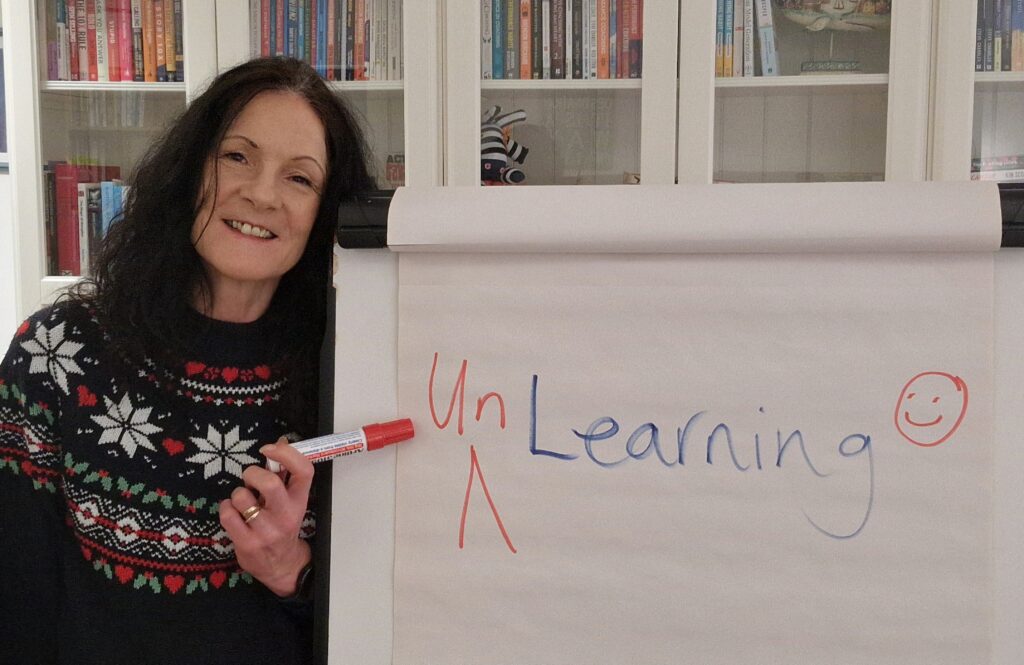As business owners, we’re often told that the key to staying ahead lies in learning. New tools, new strategies, new insights – we chase them to gain a competitive edge. And I’m a BIG fan of continuous learning.
But what if the secret to growth isn’t about adding more knowledge, but letting go of what no longer serves us?
This is the essence of unlearning. It’s not about forgetting or rejecting the past but about shedding outdated habits, processes, and mindsets to make room for better approaches.
In today’s dynamic market, the inability to unlearn can be just as detrimental as failing to learn. Here’s why unlearning is critical for business success – and how to get better at it.
The Cost of Clinging to the Familiar
Consider this: some of the biggest business failures – like Blockbuster or Blackberry – stemmed not from a lack of knowledge, but from an unwillingness to adapt. These companies held onto strategies that had worked in the past, even as their markets evolved.
For business owners, the stakes are high. Whether it’s clinging to outdated marketing methods, inefficient workflows, or assumptions about customer behaviour, the cost of inertia is often far greater than the discomfort of change.
Here are four ways to start unlearning
-
Audit Your Assumptions
The first step in unlearning is identifying the practices that are holding us back. Ask yourself and your team:
“Why do we do things this way?”
“Is this still effective?”
“What would happen if we stopped?”
For example, if your business has always relied on in-person trade shows for lead generation, it might be time to explore virtual events or digital campaigns.
-
Foster a Culture of Curiosity
Unlearning isn’t a solo activity. It’s a mindset that needs to permeate your organisation. Encourage employees to challenge the status quo and reward creative problem-solving. As leaders, we can promote this culture by holding brainstorming sessions or recognising innovative ideas, even if they don’t work out initially.
When employees see that experimentation is valued, they’re more likely to explore new approaches and let go of outdated ones.
-
Reconnect With Your Customers
Often, businesses stick to familiar strategies because they assume they know what their customers want. But customer needs and preferences change over time. Go out and ask for feedback regularly through surveys, interviews and analytics.
For example, a retail business might discover that its customers prefer online shopping experiences over in-store visits – a shift that requires letting go of traditional retail strategies in favour of strong e-commerce solutions.
-
Lead the Way
As a business owner, we set the tone for our organisation. If we’re willing to acknowledge when something isn’t working and change tack, our team will follow suit. Sharing our own stories of unlearning – whether it’s letting go of a product line or rethinking our approach to leadership – can inspire our team to do the same.
The Benefits of Unlearning
When we unlearn, we create space for innovation. This might mean adopting new technologies, exploring untapped markets, or simply streamlining internal processes. It also builds resilience within our business, allowing us to adapt quickly to market shifts.
Unlearning isn’t about erasing our expertise; it’s about evolving it. By questioning old habits and embracing new ideas, we can be confident that our business stays ahead of the curve in an ever-changing world.
Unlearning as a Superpower
In the race to grow and compete, it’s easy to assume that more knowledge is always the answer. But sometimes, the path to progress starts with letting go. By unlearning what no longer serves us, we unlock the potential to adapt, innovate, and lead with clarity.
For business owners, the challenge is clear: don’t just ask, “What can we learn next?” Instead, ask, “What can we unlearn?” The answer might be the key to your next big breakthrough.



